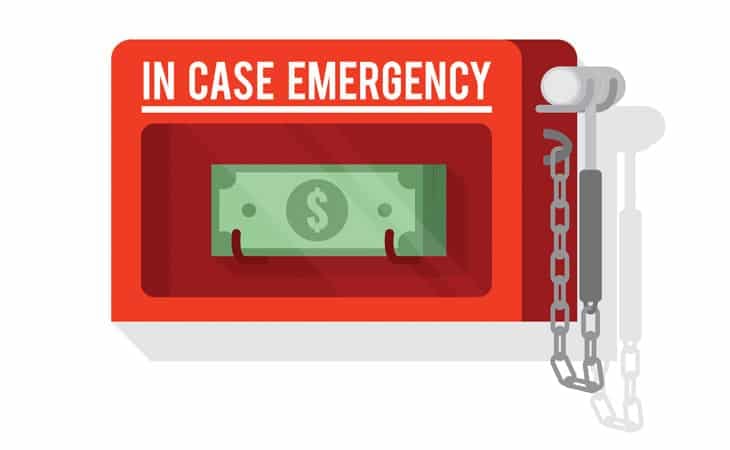You should have an Emergency Fund, and here is WHY
At some point in our lives sh*t is going to happen, so we better be prepared for rainy days.
We can lose our job, we can have a car accident or our fridge may decide it’s time for a replacement.
“All sorts of things can happen!”
This is where an emergency fund comes in. It’s basically money on the side and easily available to pay for unexpected expenses.
As the name of the fund illustrates, this money is for an EMERGENCY! This is not money for a new car or for some fancy vacations.
An emergency fund is there to cover circumstances we cannot predict.
Just think about the Covid-19 real quick. Do you think you could predict second quarter of 2020 is expected to have 400 million job losses?
No one could. What we can do is to prepare for the impact of e.g. a job loss for a period
How Much Should I Save for My Emergency Fund
There is a thing about personal finance! It’s personal so there is no real consensus here.
The general rule is 3-6 times our monthly expenses. This means that if we need 5000 per month to pay for our living expenses, we should aim to have 15000-30000 on the sidelines.
However, you need to assess your own situation. Are you a single or a couple? Do you have kids? Do I work for the public or private sector? How easy is it to find a new job? Can I benefit from social help in case of a job loss?
All of these points are rather important when we want to calculate how much we need.
The emergency fund can be reduced if you are in a low-risk scenario. Be honest with yourself and assess your risk.
My Personal Emergency Fund
My Personal choice is set to 4.6 months of expenses because it works for me. I might lower it to only 4 months in future.
My advice is to go for an amount that makes you feel comfortable and sleep well at night.
Don’t think risks don’t exist because they do!
How to Start an Emergency Fund
If you do not have an Emergency Fund, this should be your priority number one. You are not ready for catastrophe or rainy days, so take action immediately.
Here are the steps I recommend:
Make your fund easily available but no so easily that having a dedicated card for this account. If you are not disciplined with money, consider having the money allocated to a different bank that you do not use in your daily life. This may help to forget about it!
When To Use the Emergency Fund
What exactly is an emergency? For some, buying the new iPhone can be an emergency…
Jokes aside, an emergency can mean different things for different persons. So my advice is to list what you would consider an unpredictable event that requires money right away.
I have my own list as an example:
The list is not extensive but you get the point. I don’t include a new computer if it is just an upgrade, vacations or new sunglasses.
These are not emergencies for me!
